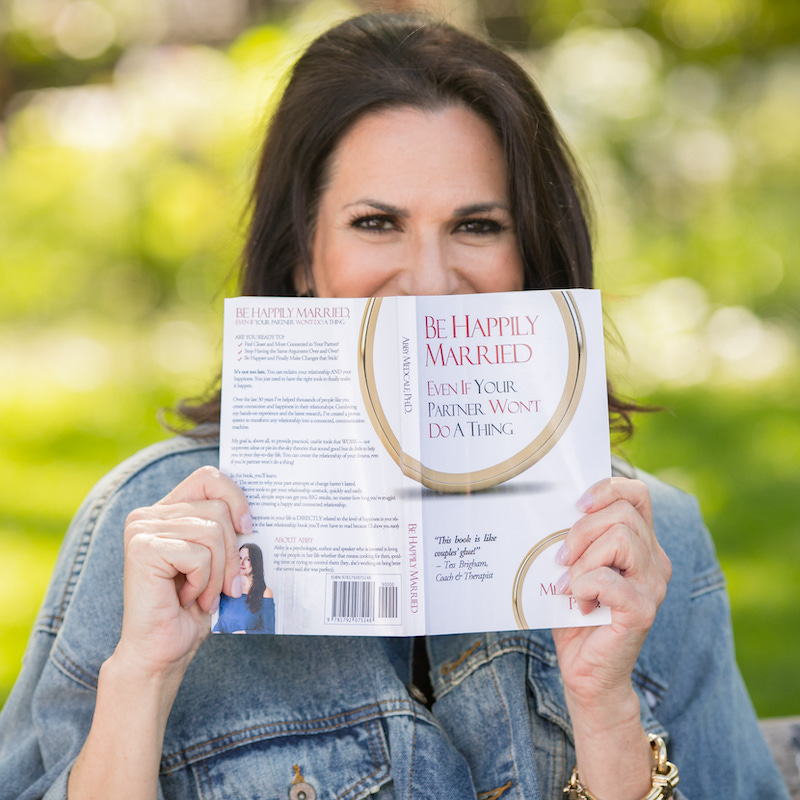
According to recent studies, about three million Americans live apart from their spouse at some point during their marriage and 75% of college students have been in a long-distance relationship. Currently, it’s estimated that about 16 million people in the US are in long-distance relationships with the average distance being 125 miles.
Most people think long-distance relationships “never work” but that couldn’t be further from the truth. Research has shown that long distance couples actually have the same or more satisfaction in their relationships than couples who live together. The studies also show higher levels of dedication to their relationships, more feelings of freedom (being less trapped) and more intimacy.
In a paper titled “Absence Makes Communication Grow Fonder,” researcher Crystal Jiang, says:
“Indeed, our culture, emphasizes being together physically and frequent face-to-face contact for close relationships, but long-distance relationships clearly stand against all these values. People don’t have to be so pessimistic about long-distance romance. The long-distance couples try harder than geographically close couples in communicating affection and intimacy, and their efforts do pay back.”
Today you’re going to learn my top eight dos and don’ts for making long-distance relationships great!
Do #1: You’ve Gotta Believe
If you’re focused on things working, guess what? You’ll find yourself seeing a lot more good than bad.
Your brain is equipped with something called your Reticular Activating System (or RAS for short). Your RAS is a filter between your conscious and subconscious mind. It takes instructions from your conscious mind and passes them on to your subconscious. You’re constantly giving your RAS instructions by what you’re thinking about – the problem is that you don’t even realize it.
So if you’re thinking, “My partner is always judging and criticizing me,” the RAS hears this as the instruction or order: “look for my partner criticizing me.” Sure enough, your partner is “always” judging – you hear it constantly.
The good news is that you can deliberately program the RAS by thoughtfully choosing the exact messages you send.
You want to stop focusing on how much it sucks to be in a long-distance relationship and, instead, focus on the positives and how it’s adding to your relationship and helping you build a strong relationship.
Don’t bring negativity and doubt in.
Do #2: Make a Schedule
If you were living together, you’d have some kind of schedule. You’d know when you’re partner was coming home or where they were during the day. It’s a little different with long distance relationships. While it’s not needed to know where the other person is every minute or to check in every time they leave somewhere, it IS good to have a schedule for when you’ll connect.
When you’re thinking about that schedule, ask these questions:
- When are you at your best? What time of day?
- When can you devote unrushed time and full attention to conversations?
Don’t check up on your partner constantly.
You know when you’ll connect so go live your life in the meantime (and that’ll give you something to talk about on those calls).
Do #3: Set Some Ground Rules around Expectations:
You’ve got to be on the same page when it comes to the ground rules for the relationship. For example:
- How fast should a response to a text be?
- What form of communication do you both like best or will work best for both of you?
- Who can be more flexible with their schedule to accommodate the other?
- When do you need connection the most (bedtime, first thing in the morning, middle of the day check-in?)
- How often are you going to communicate?
Don’t make assumptions. Make everything crystal clear.
Do #4: Keep Your Eye on the Prize
One of the key factors in making a long-distance relationship work is to have an agreed upon end date. The research shows that partners who aren’t clear about when they’re going to be living under the same roof end up with significantly more stress and were less happy than those who had an end date in mind.
The bottom line: you want to have ongoing conversations about the expectations of exactly what the outcome of your separation will be, and when.
Don’t be ambiguous or unclear with your partner.
Do #5: Be There Even When You’re Not
Not living together physically doesn’t mean you can’t be there. There are a number of great ways to do this:
- Physical reminders of your partner are great (you might want to sleep in that shirt that still smells like him) or have other reminders around – pictures, gifts, mementos or souvenirs from that last trip you took together.
- You can send one another things: written letters, small gifts, fruit of the month club, and care packages are all great!
- Do stuff together even though you’re apart:
- Play an online game together or have a series or show that you watch together every week.
- Video chat while he shops for clothing and you help him pick out that perfect shirt.
- Maybe you go on a nature hike and send her a video of all that you’re seeing so she can experience it with you.
Don’t think out of sight, out of mind.
Do #6. Quality over Quantity
It’s not how much you communicate, but the quality of that communication: this is true for long-distance couples as well as geographically close ones and this is a place where long-distance couples have the advantage because you know your time together is precious so you treat the communication differently. You’re not going to spend time on logistics or the ins and outs of living together.
Geographically close couples have so many opportunities to communicate that they can lose quality (“Isn’t it your turn to put away the dishes?” “Chicken for dinner again?” “You keep missing the hamper with your dirty clothes!”).
So, long-distance couples won’t have as many opportunities to communicate (quantity) but you can really make the quality something special and that’s where the emotional closeness lives.
You don’t have the ability to read subtle body language and pick up on other cues (no matter how much FaceTime you use) so make sure the language you use is thoughtful and deliberate.
The good news is that when you focus on quality, you build a strong connection. For many people, it’s easier to share deeper feelings when it’s not face-to-face. This doesn’t make the intimacy and connection any less real. In fact, you might create more intimacy and closeness from the level of sharing and getting to know one another.
So, when you do eventually spend more time together and have to deal with chores and snoring – these will be overcome more easily as you work from a strong foundation of emotional closeness.
Don’t try to connect out of insecurity.
Drs. Diane Rudolph and Phillip Lee, co-heads of couples’ therapy at Weill Cornell Medicine say: “When the communication is hijacked by insecurity, the anxious partner will not be reassured, and the other partner will be turned off by the constant checking [in]. The frequency of interaction in couples separated by distance needs to correlate to the same parameters of interaction when both are at home. It needs to be at a level agreeable to both parties.”
So, there’s no need to text all day long. There’s no reason to be extra clingy. Have your times that you check in and leave it at that. If something major comes up that you want to share, by all means call. But, if it’s just your insecurities and fear cropping up, you’ve got to stop yourself and focus on yourself and your life. Why is this feeling here? It’s about you, not the other person.
Do #7. Meet in Person as Regularly as Possible
When you haven’t seen each other in a while there can be a lot of pressure on “making the most of your time together.” This sets you up for lots of disappointment if things don’t go perfectly (which will definitely happen). Make sure you have some things to do, but mostly go with the flow and just “be” as much as possible. It doesn’t need to be an extravagant vacation every time.
Don’t put pressure on creating a weekend extravaganza when you’re physically together.
Do #8. Focus on love not fear
You can’t spend time being jealous or worried. Just like in a close proximity relationship, these fear-based emotions never work. You can’t have a love relationship based on fear. If you’re having these emotions, it means you’re disconnected, so work on the connection instead of working on snooping.
Don’t spy! Absolutely NO sneaky behavior or secret stalking of your partner’s life.
If you don’t trust your partner, you’re in big trouble whether you’re physically close or apart.
Focus on the dos and not on the don’ts and you can absolutely have an emotionally close, loving relationship that goes the distance (pun intended).







